In my head, literal thinking is one of the most widely known autistic traits – it’s a ‘classic’ – and so it’s not something I’ve ever thought to talk about. It’s one of the characteristics I kind of assumed everyone accepted and understood..but at the moment I’m in hospital, and it has shocked me how many miscommunications I have experienced due to staff not really being aware of my need for very clear, specific, literal wording.
Literal thinking comes under the ‘problems with verbal and non verbal communication’ (let’s ignore the word ‘problems’!!) in the diagnostic criteria for autism. The way it was explained to me was that language has two layers of meaning, literal and figurative, and autistic brains process things differently. We often have far better abilities when it comes to pattern matching and deep thinking, but making connections and being able to guess what someone is thinking or implying, can be hard. It can be difficult to predict what someone meant, thinks; it can also be difficiult to predict what could happen (and really appreciate this, rather than just know it in a learned fashion, like understanding risk and having a good sense of danger). Thus, autistic individuals can be very literal, and when following instructions or processing information, focus specifically on what was SAID, not thought, implied, or would make sense based on prior knowledge or the context.
This is also sometimes described as ‘abstract thinking’.
I think one of the reasons why it seems like people don’t understand literal thinking and autism is because a lot of older literature, and the media, only provide very simple examples, for example, suggesting that autistic individuals don’t understand idioms like ‘it’s raining cats and dogs’. Yes, it is true that some autistic individuals can struggle with these, but a lot of us experience struggles with literal thinking in much more subtle ways. For example, if someone says they’ll be with me ‘in a bit’ or ‘in a couple minutes’, I do tend to think they’ll be that specific time, and have to remind myself they won’t be. When I say how long I will be before doing something, I will say ‘I’ll be there in 7 minutes’, or whatever specific time I predict it will take. This amuses my mum!
A more recent example was when I said to a nurse ‘I’m happy to do that tomorrow if you want’, and she said that she’d pass the message on. I was completely taken aback when the next day they came to me and expected me to do the activity, because no one had confirmed that they wanted me to do it. In my mind I had offered, but this offer had not been accepted.
Here are some other examples of how I experience literal thinking:
- Getting lost when people use metaphors and idioms. While I know the meaning of them, when people use phrases like ‘it’s raining cats and dogs’, all I can think about is cats, dogs, the idea of it raining animals, what might happen if that happened…and sometimes then I lose the thread of the conversation!
- ‘Do/can you eat x?’. When I’ve been asked this, I’ve made the mistake of saying yes, because I can physically eat the food, even if I don’t like it and wouldn’t ever pick it!
- ‘We’re going to the cinema, does that sound nice? Would you enjoy that?’. I have said ‘yes’ to this, meaning I agree it’s an enjoyable activity for them, or that I might enjoy it, but to me that doesn’t mean I want to come..I wouldn’t enjoy it, or it might be that I would enjoy it, but I am busy doing my own things that day.
- ‘Do you have any x in your room?’. I have said no to this, only to be told I was hiding things, because I had the objects in a different room at home. I took the asker literally, believing they were only asking about the specific room in question.
- ‘How are you?’. Okay, well, I do know not to tell the asker all about how I actually feel, but inside it feels like lying to say that I am fine, because that isn’t how I feel!
- When people say ‘see you later’ even though they won’t see me for a few days. I usually respond without thinking and say ‘no you won’t?’, or I assume they must be coming back and ask them ‘oh, are you coming back later on today then – why?’, and it will turn out they just meant they were leaving and were using it instead of ‘goodbye’.
Do you relate to any of these?
(right click and open image in new tab to view images larger)
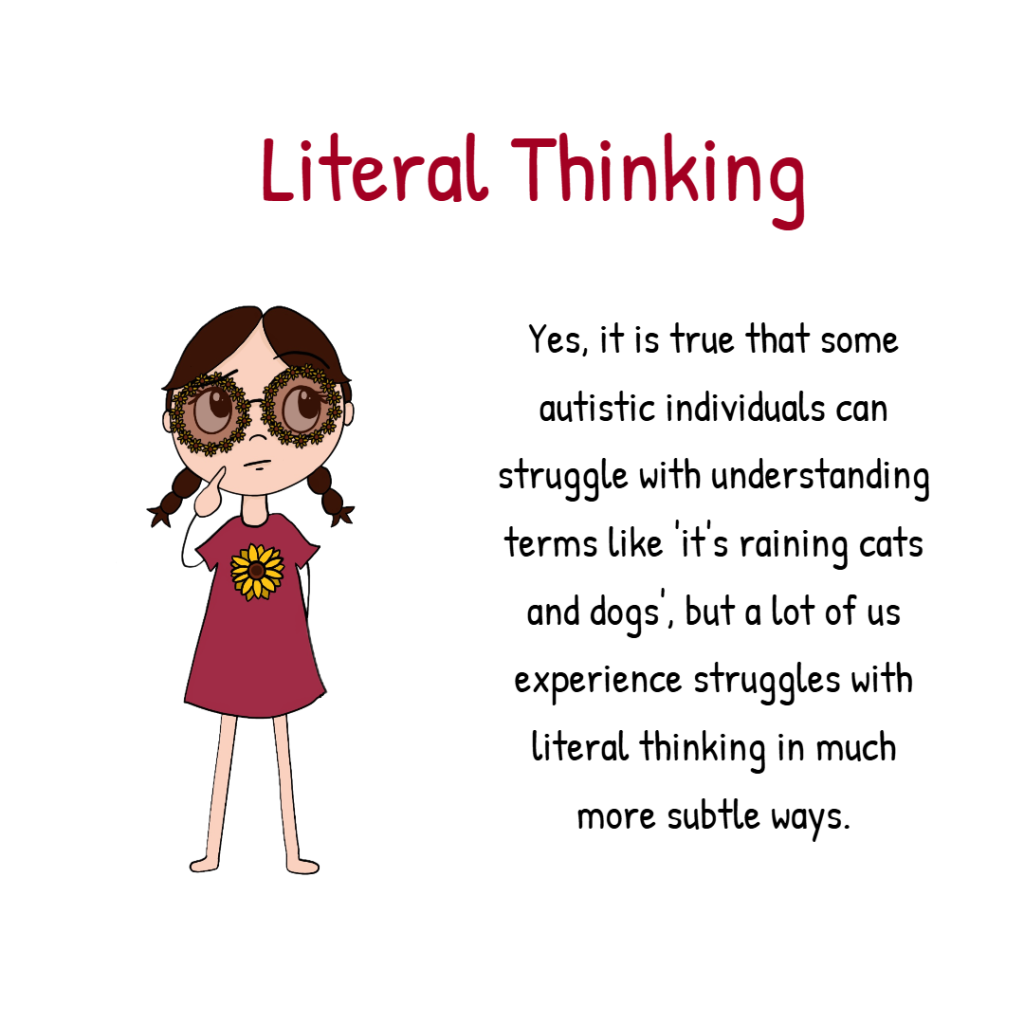
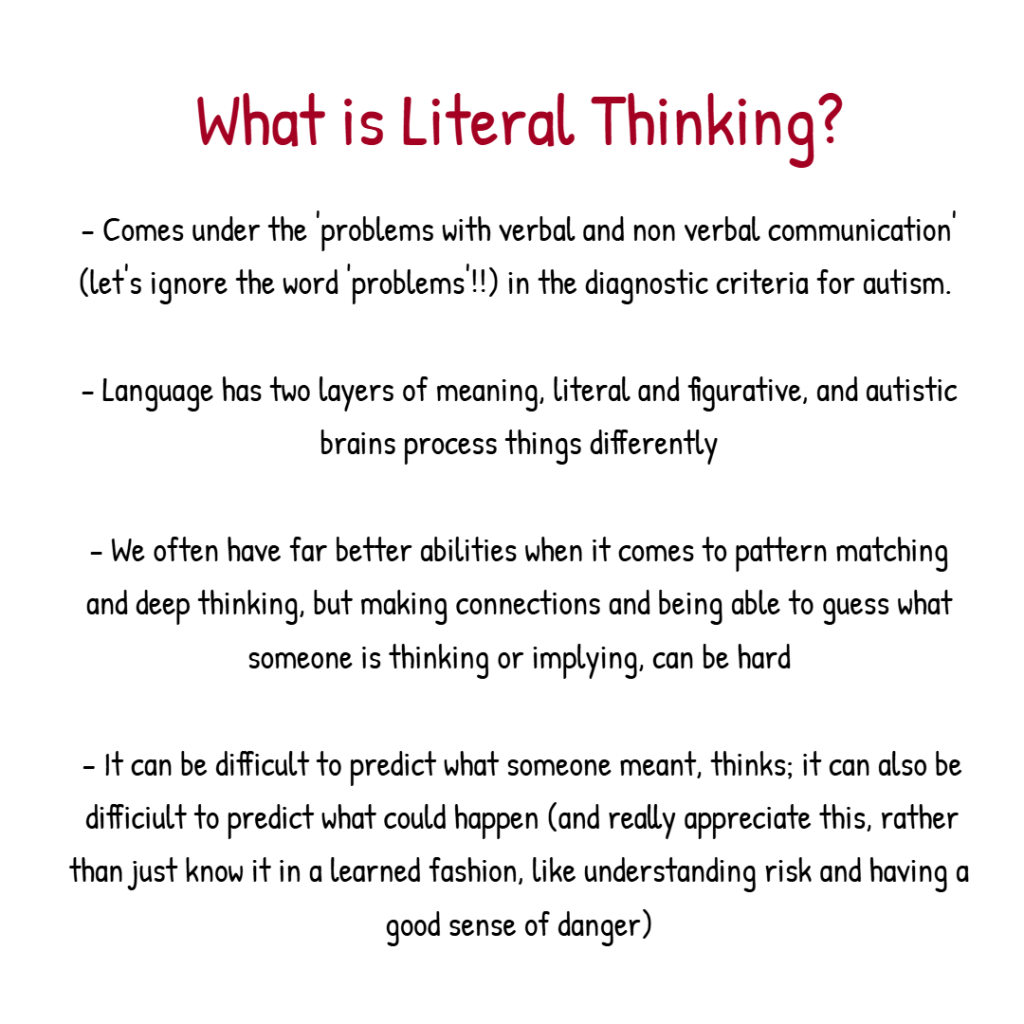
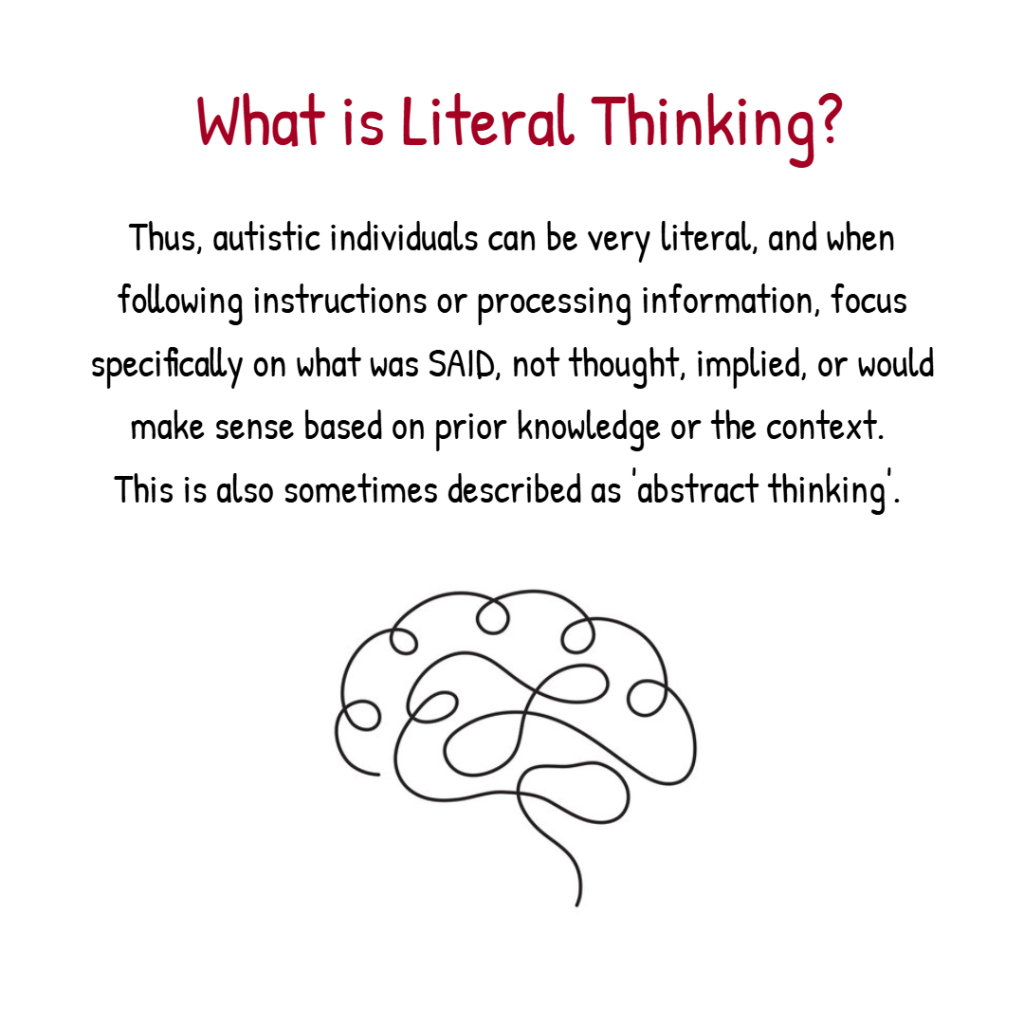
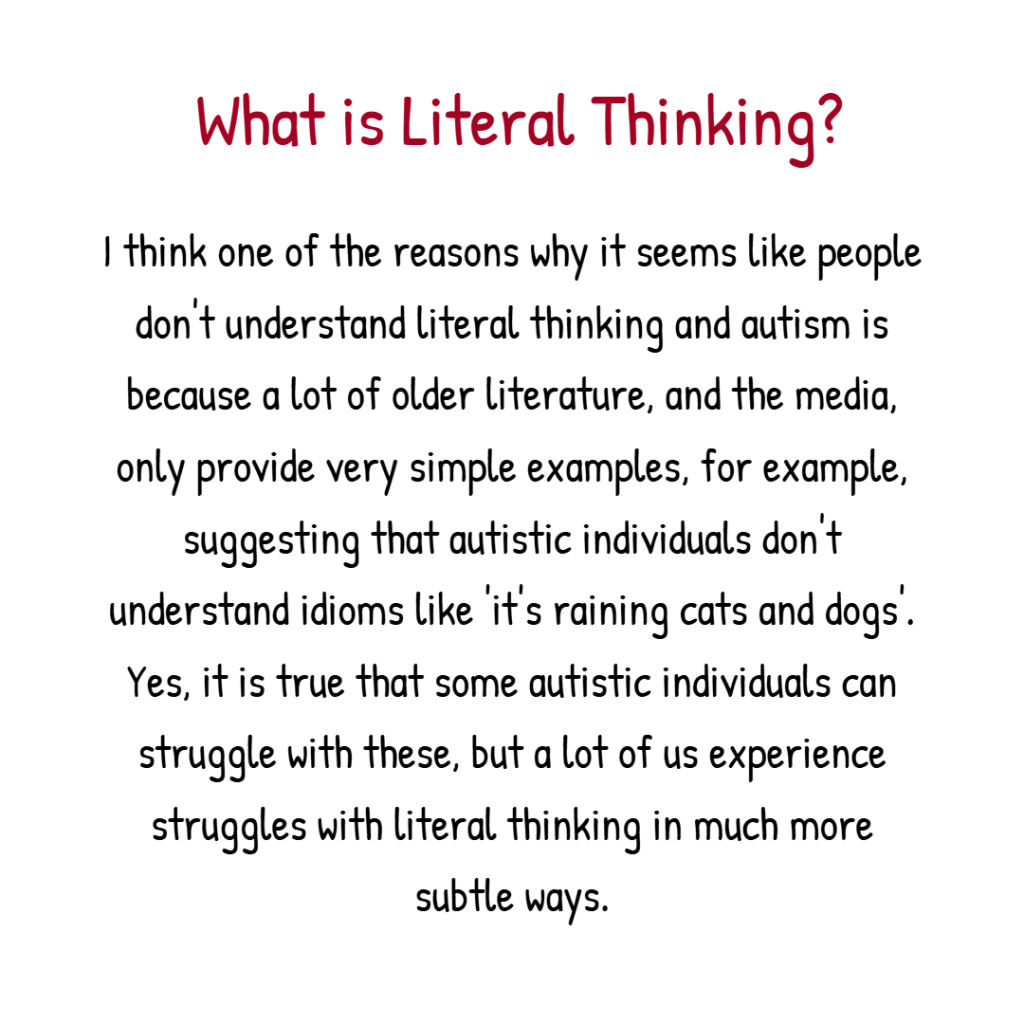
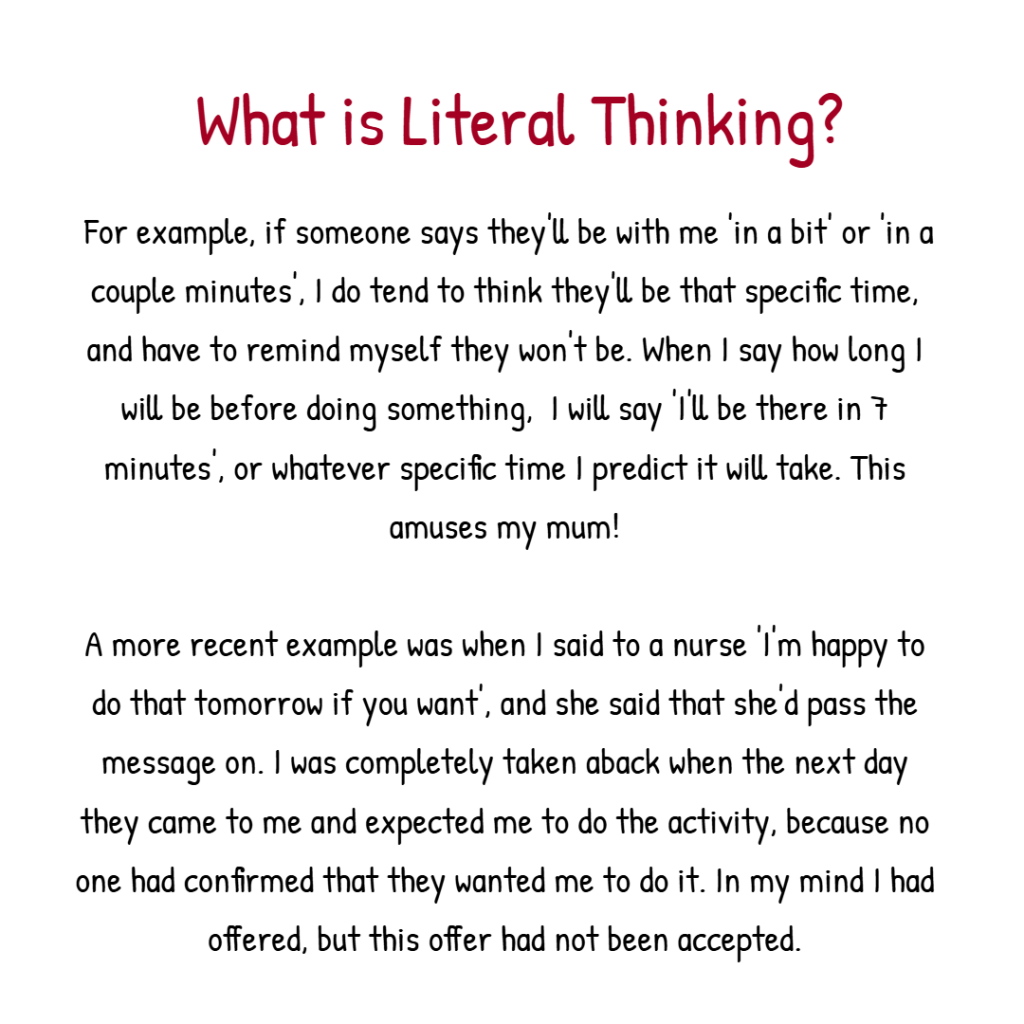
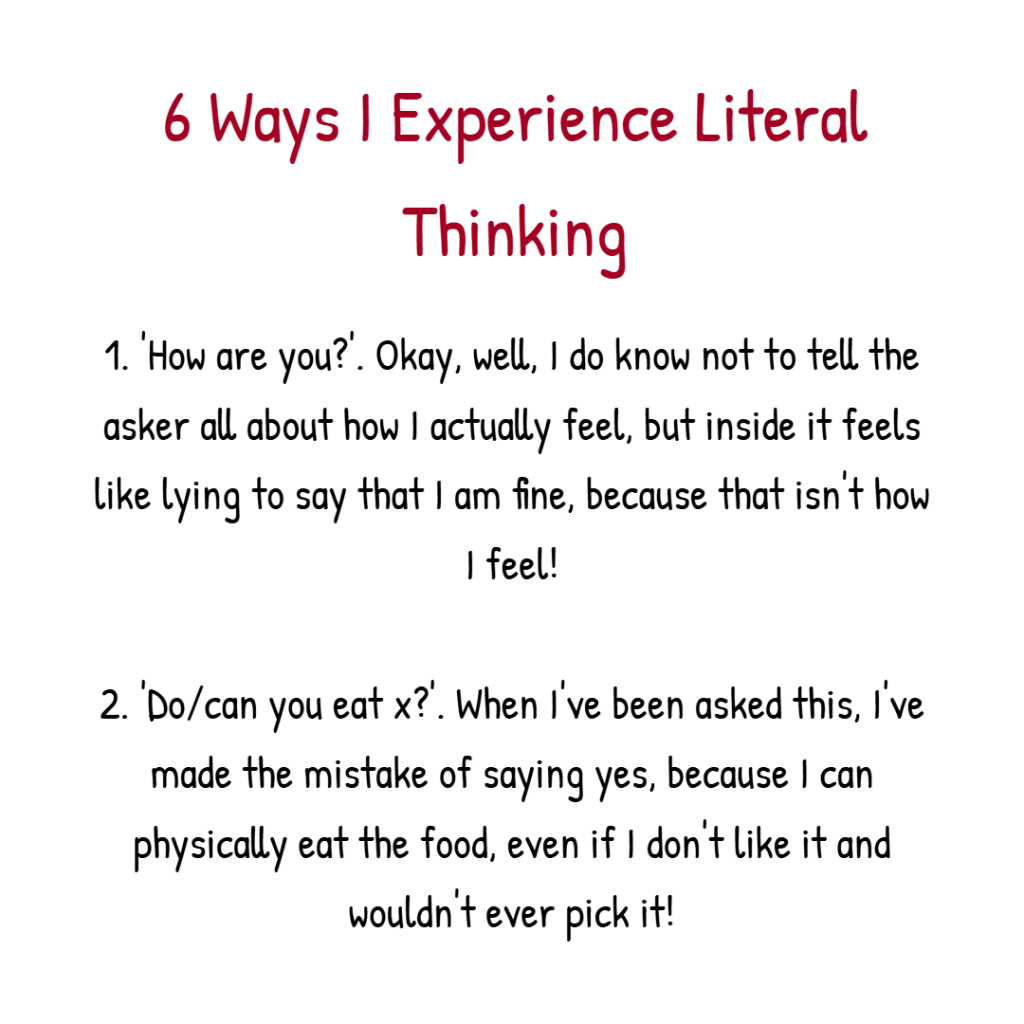
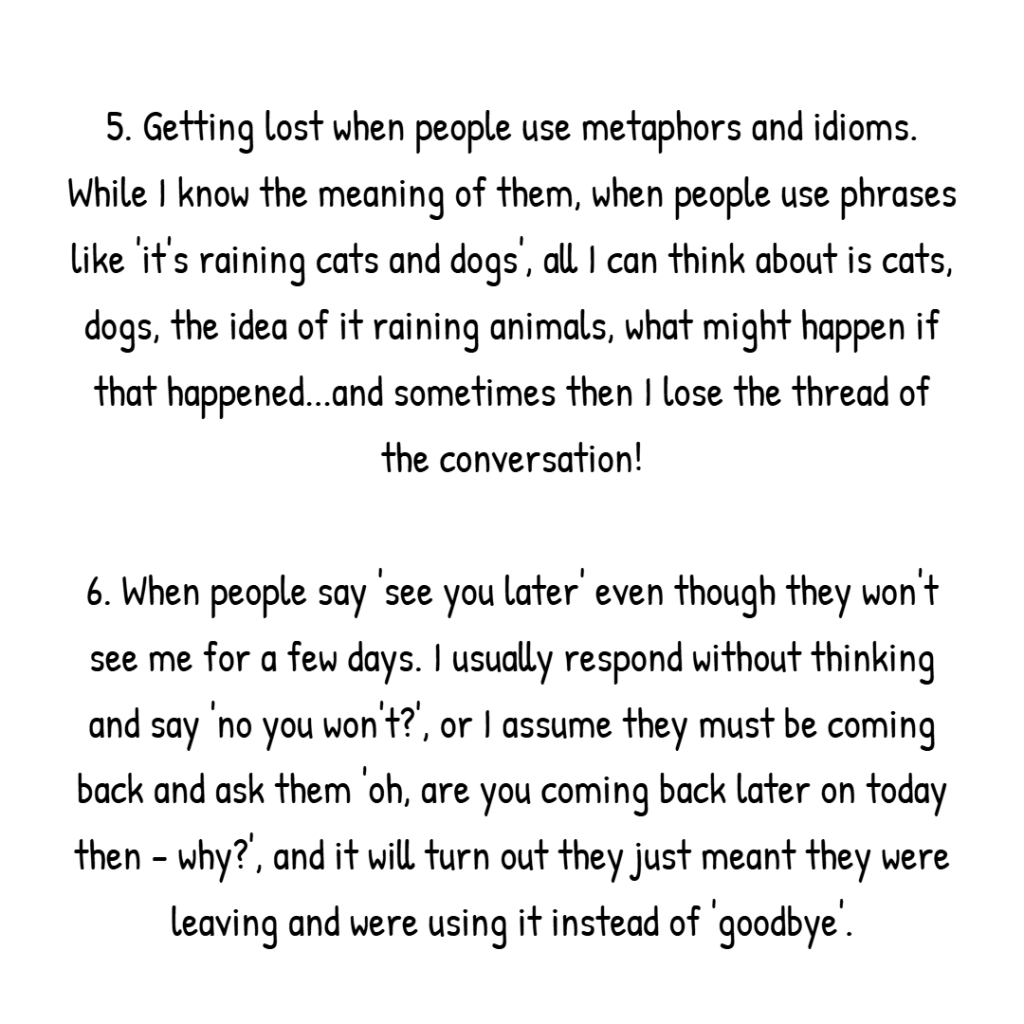
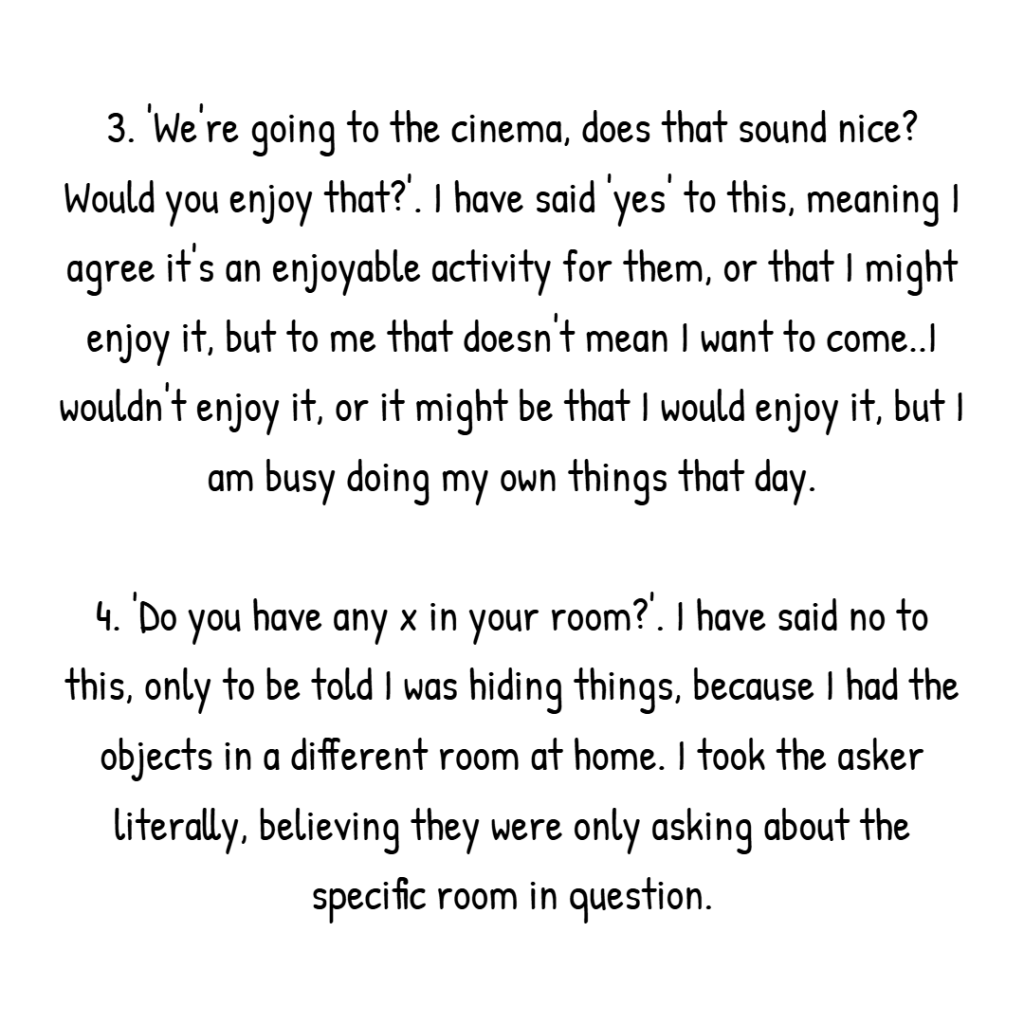
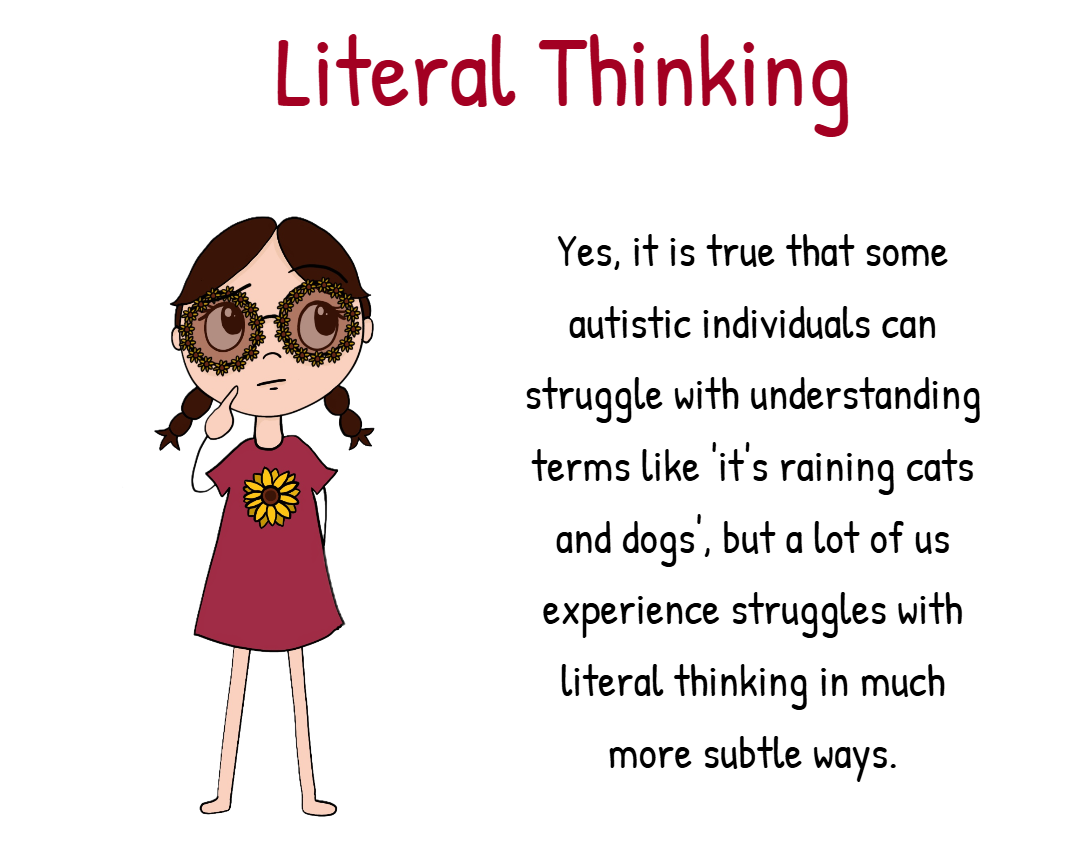
Leave a Reply